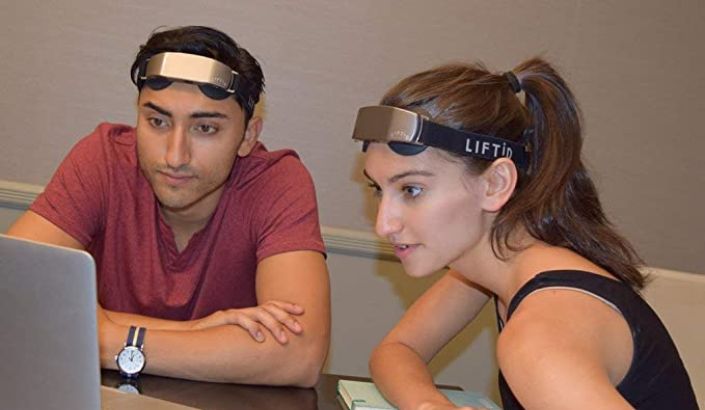For generations, people have used sugar and caffeine to boost mental focus. Ken and Allyson Davidov introduced a new way to achieve similar results without using chemical stimulants. Liftid is a neurostimulation headgear for enhancing brain performance. They featured on Shark Tank but didn’t get a deal. As of 2024, Liftid is worth $20 million.
The Founders Behind Liftid
Ken and Allyson Davidov are from New York City. Ken has a bachelor’s degree in marketing from Tulane University. At 23 years old, he became the national salesman of the year for Hasbro.
In 1987, he was the COO of a manufacturing company called Coda International. It wasn’t until 2008 that he founded his first company, Global Ionics. The company is still active and he also co-founded another startup called Taste Boosters in 2020.
Although they pitched the product on Shark Tank, Ken and Allyson are not the original creators. Dr. Theodore Schwartz, a Harvard University graduate and leading neurological surgeon in America, developed the product.
Launching Liftid
Dr. Schwartz is an expert in computer-guided surgeries. He developed transcranial direct current stimulation (tDCS), a non-invasive brain stimulation procedure that targets particular areas of the brain using electrical currents.
Over 5,000 medical studies confirm that it’s effective in improving productivity. Still, brain stimulation processes like these have potential side effects like nausea, headaches, and soreness. Ken and Allyson combined their skills in marketing and sales to sell the idea to the public.
Liftid was launched in 2018 under RPW Technology. The Davidovs promoted the invention on Gadgetflor, where it received positive reviews. They sold more than 1,240 pieces in two years which brought in $126,000 in sales.
Pitching Liftid on Shark Tank
In 2020, Ken and Allyson Davidov felt that Liftid could reach a bigger audience and Shark Tank was the perfect platform. They appeared on season 12 of Shark Tank, asking for $200,000 in exchange for a 10% equity stake.
Ken wore a strange-looking headset during the pitch. The dynamic duo made an enthusiastic presentation and the Sharks tested it out. The Sharks didn’t seem interested and when Cuban read out the medical disclaimer it was the final nail in the coffin.
To make matters worse, Ken wouldn’t stop talking. None of the Sharks wanted to be associated with this type of product. Allyson’s face at the end, summed up how the pitch went! Potentially if they had taken a scientific approach they could have got a deal.
Life After Shark Tank for Liftid
Despite Kevin labeling them as of the craziest pitches on the show, the publicity was a massive help. After their episode aired, orders on GetLiftid.com rose sharply. The surge in website traffic inspired them to start selling on Amazon and tap into their customer base.
On Amazon, Liftid headbands have an average star rating of 3.5 from over 205 customers. 42% of buyers gave it five stars and negative reviews highlight issues with the battery.
Liftid makes around $5 Million in annual revenue and is worth an estimated $20 million. Currently, the company hasn’t published any recent sales figures as it is a private company.
